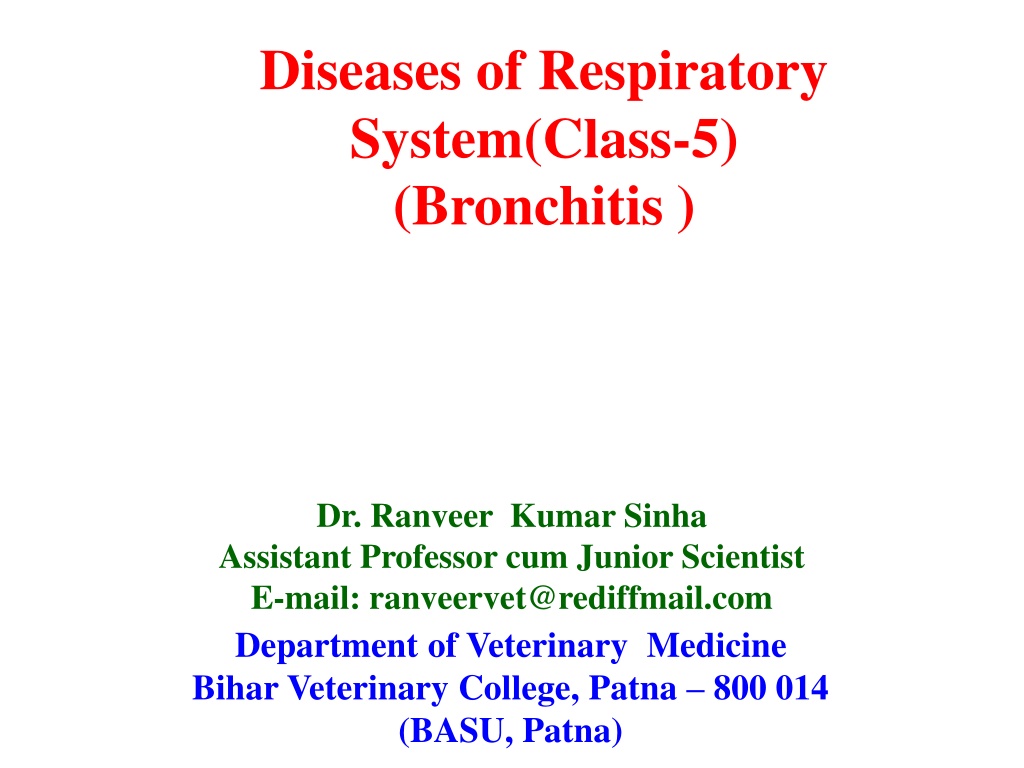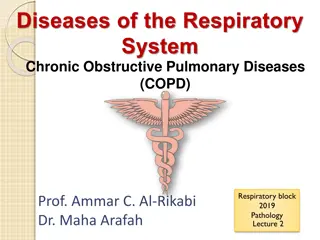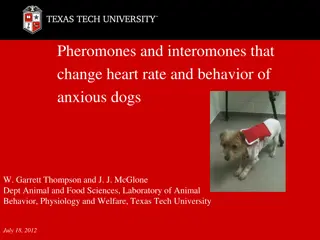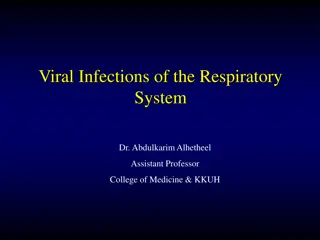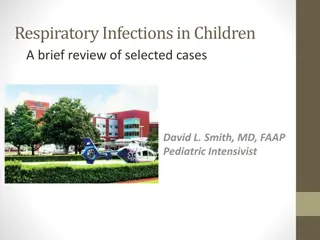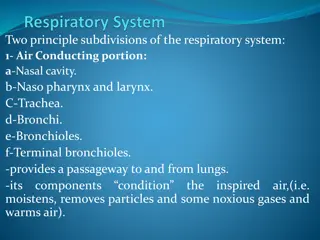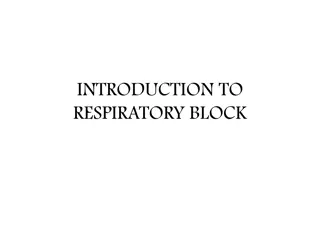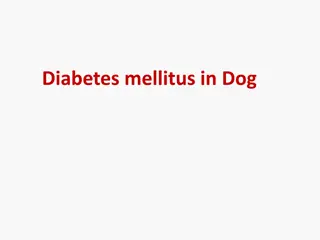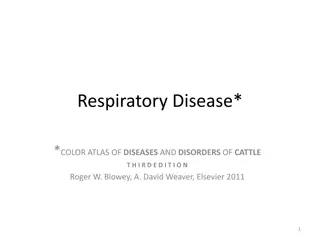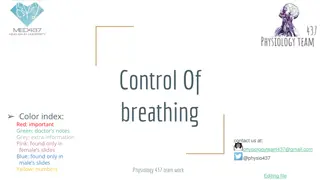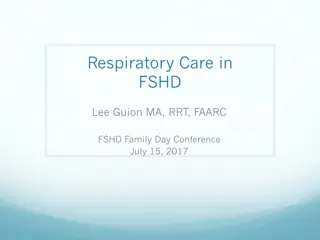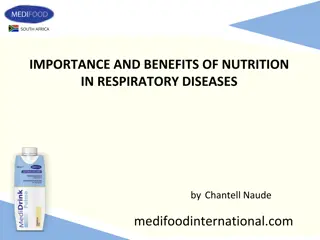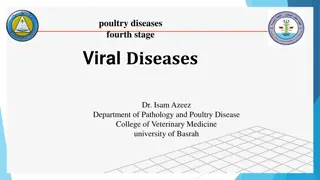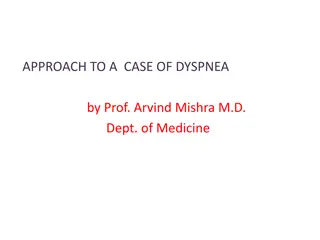Respiratory Diseases in Dogs: Bronchitis Overview and Management
Acute bronchitis is an inflammation of the bronchi, while chronic bronchitis is characterized by persistent cough and mucus secretion. Both conditions can affect dogs, and this comprehensive guide by Dr. Ranveer Kumar Sinha provides insights into causes, symptoms, diagnosis, and treatment options, including hygiene measures, medicated treatments, antibiotics, and more.
Download Presentation

Please find below an Image/Link to download the presentation.
The content on the website is provided AS IS for your information and personal use only. It may not be sold, licensed, or shared on other websites without obtaining consent from the author. Download presentation by click this link. If you encounter any issues during the download, it is possible that the publisher has removed the file from their server.
E N D
Presentation Transcript
Diseases of Respiratory System(Class-5) (Bronchitis ) Dr. Ranveer Kumar Sinha Assistant Professor cum Junior Scientist E-mail: ranveervet@rediffmail.com Department of Veterinary Medicine Bihar Veterinary College, Patna 800 014 (BASU, Patna)
Acute Bronchitis Def.: Acute inflammation of the bronchi and bronchioles that may extend to lung tissues. It is characterized by paroxysmal exudative cough. Etiology: Predisposing factors: 1. Bacterial and viral infection. 2. Exposure to allergens. 3. Irritant smokes or gases. 4. Sudden change of environment. Secondary to: 1. Heart diseases. 2. Parasitism.
Diagnosis & Treatment Diagnosis: History Symptoms Bronchoscopy Treatment: A- Hygienic treatment: Rest Warmness B- Medicated treatment: 1. Expectorants - Expectorant containing Codeine 5 mg orally every 6-8 hours
Treatment 2. Medicated steam inhalation: 1. Cresol, creoline, thymol , Tr. Benzoin in boiling water. 3. Antibiotics 4. Oxygen therapy 5. Antihistaminics: Avil
Chronic Bronchitis Definition: A condition of chronic or recurrent cough associated with mucus secretion in the bronchi and bronchioles which is not due to lung disease, the cough may occur in certain season. Causes: Chronic exposure to sulpher dioxide gas. Passive cigarette smoking cause the disease in pet dogs. Acute infectious tracheobronchitis is a predisposing factor for the disease. Bordetella bronchiseptica usually isolated from the bronchi of affected dogs. They can not produce the disease by themselves.
Symptoms It is disease of adult dogs, less common to be seen in dogs less than 3-5 years. Chronic/persistent intractable cough The cough is unproductive, dry, harsh and hacking. It is easily induced by tracheal pressure, or exercise. The cough may occur as bouts of paroxysms. Temperature is normal. Lungs may have normal vesicular or inspiratory coarse crackles or polyphonic expiratory wheeze The cough may be moist in the morning follows by retching. Lethargy, fever and inappetance may indicate bacterial infection.
Diagnosis 1. History of causes 2. predisposing factors 3. history of previous continuous illness. 4. Symptoms 5. Radiography.
Treatment The owner should maintain warm environment especially in winter season. Minimize the irritating factors as much as you can for long time to regain the normal structure of the airway. The owner must be informed of the nature of the disease and the possible causes to avoid. In cases of bacterial infections use: Antibiotics
Treatment Liquefaction of mucus secretions Aerosol therapy: By exposure to water vapor such as steam of hot shower in the bath room 2- 3 times daily. Expectants: Saline expectorant as sodium or potassium citrate, ammonium chloride or potassium iodide, they increase less viscid bronchial secretions. Volatile oils: as turpentine, eucalyptus oil. Patent preparations may be effective
Treatment Bronchodilator: there are 3 mains groups: - adrenergic agonists: such as epinephrine, isoprotarenol, metaprotarenol and sulbutamole are not effective in pet animals. Xanthins: as thiophylline and its various salts e.g. aminophylline orally is the drug of choice. Anticholinergic drugs. e.g atropine sulphate. Cough expectorant: orally during severe paroxysms otherwise mucus will be retained in bronchial tree. e.g codeine Corticosteroid like prednisolone
